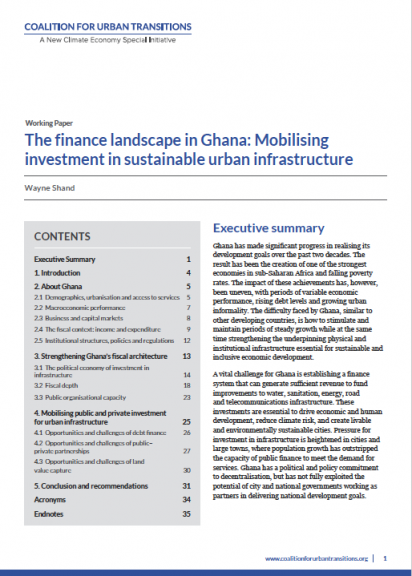The Finance Landscape in Ghana: Mobilising investment in sustainable urban infrastructure


This working paper examines the challenges of meeting the demand for sustainable urban infrastructure in Ghana. It considers the most promising opportunities to unlock sustainable infrastructure investment through analysis of Ghana’s financial landscape.
Ghana has achieved significant economic growth and poverty reduction over the last two decades, and is now one of the strongest economies in sub-Saharan Africa. However, economic and human development have been uneven. Rapid urbanisation has exacerbated deficits in urban infrastructure such as power, transport, sanitation and piped water. This has affected human health and economic productivity, and led to polluted, unsafe urban environments. The country faces ongoing challenges in mobilising the funding and finance needed for major infrastructure investment, which is essential for Ghana to deliver a high quality of life for its residents and realise its full economic potential.
This working paper considers the most promising opportunities to unlock sustainable infrastructure investment through analysis of Ghana’s fiscal and financial landscape. It identifies key interventions in three linked areas of public policy:
These reforms to Ghana’s fiscal system could expand the government’s resource envelope, unlocking the funding needed to improve its water, sanitation, energy, road and telecommunications infrastructure as well as anchoring access to credit. These investments would lay the foundations for sustained economic and human development, creating liveable and sustainable cities that can power the national economy.